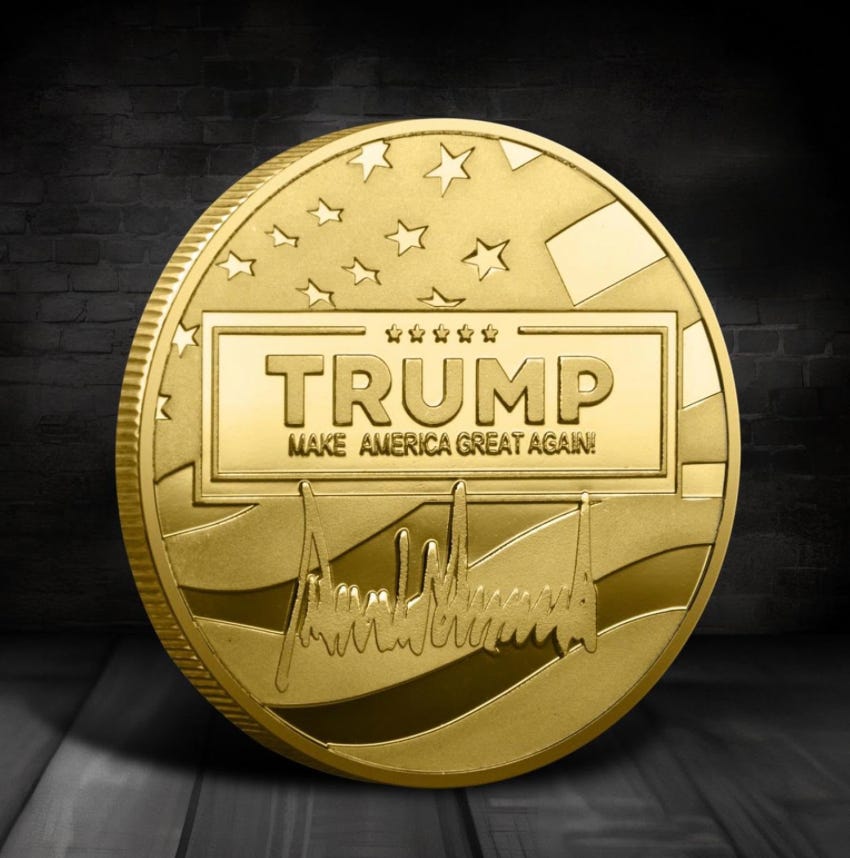Part of the appeal of Donald Trump’s gauzy promise to “Make America Great Again” is that it’s vague enough to appeal to constituencies who have little more than an unfocused nostalgia for some mythical golden age in the American past.
Whenever reporters have tried to pin Trump or his supporters down on when exactly they think America was great — in order to get a better sense of just how that greatness was defined and, more importantly, to understand what kinds of Americans were blessed to benefit from that greatness and what kinds were not — the campaign has tended to get a little vague.
But when pressed, it seems that most of Trump’s aides and admirers seem to think they’ve been pushing for a return to the 1950s. That was an era when white men like them still reigned supreme, with women largely limited to more traditional roles of homemaker, African Americans in a place of second-class citizenship, and Mexican immigrants deported in an Eisenhower-era program whose name is absolutely a draw for Trump today.
While the 1950s would certainly fit the social vision of MAGA land — with the Bible being taught in public schools and abortion and even contraception outlawed in some states — the economic orthodoxies of that era don’t mesh with Trump’s vision. Taxes were surprisingly high on the top income brackets, for instance, while membership in labor unions was at an all time high too.
Luckily, Donald Trump, Student of History, has chimed in this time around to let us know that the era he’s been trying to recreate isn’t actually the 1950s. It’s the 1890s.
During a town hall in Michigan, the ramblin’ man had these pearls of wisdom for us:
We’re going to use tariffs very, very wisely. You know, our country in the 1890s was ... probably the wealthiest it ever was, because it was a system of tariffs. And we had a president — you know McKinley, right? You remember Mount McKinley? And then they changed the name. But one of those things. He was really a very good businessman, and he took in billions of dollars at the time, which today it’s always trillions, but then it was billions and probably hundreds of millions. But we were a very wealthy country, and we’re going to be doing that now.
While the historians in this country were all screaming in pain — McKinley was not even a businessman, Jesus Christ — several reporters did us the favor of pointing out that this praise for the era’s protectionist tariffs was incredibly stupid. The tariff imposed in 1890 proved to be deeply unpopular (leading to Republican defeats in 1890 and 1892) and completely ineffective (prompting the Panic of 1893).
To be sure, the extremely wealthy did quite well in the era we’ve come to know as the Gilded Age, but they were the exceptions to the rule. This was a prolonged period of almost staggering economic inequality, thanks to the tariffs and other policies that shielded the rich and shifted the burden to ordinary Americans.
The wealthiest Americans — the ones regular folk called “robber barons” — made off like, well, bandits. A full third of the nation’s wealth was owned by the top 2% of American households in the late 19th century; three-quarters of it was owned by the top 10%.
Meanwhile, nearly half of the country had no savings or investments at all. The wages they made in an industrial economy whose rules were stacked against them were barely enough to keep afloat. As a result, a full eleven million of the twelve million households in America — a full 92% of the country — lived below the poverty line.
There’s a reason the decade of the 1890s was notable for the rise of an aggressive populist movement that challenged corporate power, as well as more radical movements in labor organizing and anarchist campaigns of political violence directed at the ruling class. For most of the country, the Gilded Age was a nightmare.
And that’s just seeing the era from the perspective of a non-wealthy white man, the kind who fills up Trump’s rallies these days. The 1890s were also a decade of pronounced white supremacy, with the introduction of segregation laws and their sanction by the Supreme Court in Plessy v. Ferguson (1896) as well as countless campaigns to disfranchise black voters at the state level. And they were an era of repression in sexual identity and sexual activity, with the Comstock Act of 1873 — a measure Trump’s allies in Project 2025 want to revive — leading the way.
It’s not surprising that Donald Trump thinks the 1890s were a golden age. For people like him — the lazy sons of the New York wealthy — the era had a lot to offer.
But for everyone else, it was an experience that ranged from bad to horrific. Anyone who’s actually studied this era should be terrified of a politician who sees it as a model to be replicated.





Subscribing to Campaign Trails is probably the smartest thing I’ve done in the last 10 years. There is one observation, I am absolutely certain is accurate. If American democracy survives this election cycle, future Presidential debates, should have a respected historian sit as one of the moderators on the panel. Same for VP, Senate and House election debates. Same for State elections.
Kevin, I always thought W wanted to bring us back to the age of the Robber Baron, but only financially--he didn't particularly obsess over the social issues except where they could help him electorally (see: Karl Rove). Now we have Trump divining the whole package. My grandchildren could end up in the same boat as my grandparents! Vote, people!